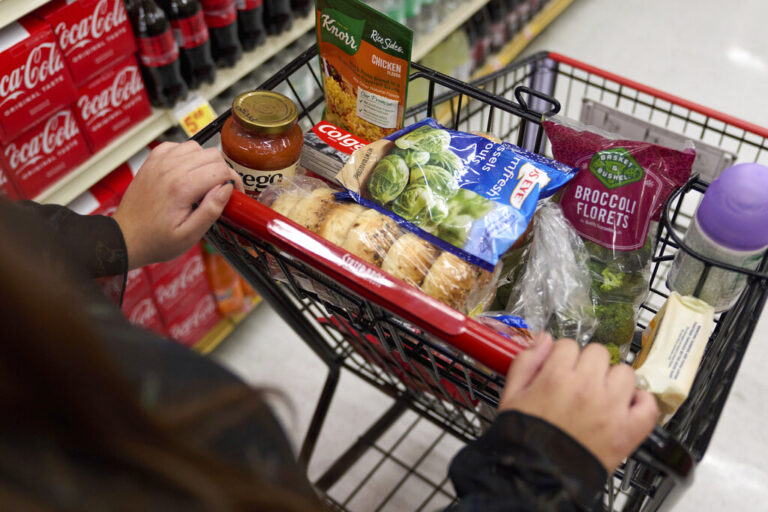CHAMPAIGN – Beginning this month, people who rely on the Supplemental Nutrition Assistance Program (SNAP) will see a sharp reduction in benefits.
As the emergency allotments enacted by Congress at the start of pandemic expire, 16 million American households will now receive less monthly assistance.
In Illinois, the change is expected to affect two million people, according to the Illinois Department of Human Services. Recipients will see their benefits reduced anywhere from $95 to $250 a month.
Those reductions are coming amid sharply rising food costs due to inflation. And while advocates say the true scope of the impact won’t be measurable until next month, concern is already mounting.
Patrice Gentry, who is the program coordinator at the Center for Hope food pantry in Bloomington, said she expects the need for services to surge in the coming months.
“We’re ramping up supplies to account for more expensive food items like protein and vegetables,” Gentry said. When grocery budgets are reduced, meat and produce can become unaffordable, and Gentry wants her clients to be able to plan meals around healthy items.
But it’s not just grocery budgets that will be affected, she said. The reduction in SNAP benefits will force many people to completely rethink their household expenses.
“They’ve written it into their budget,” Gentry said of the emergency allotments. “It’s like taking a pay cut.”
Increased food allowances allowed for more income to be directed toward expenses like gas and clothing, Gentry said. Now she worries that when it comes to household management, SNAP recipients will face tough choices across the board.
Those concerns were echoed among visitors to an Eastern Illinois Foodbank Foodmobile in Danville over the weekend. Amanda Borden, who is the vice president of development for the organization, said those lined up for food spoke of dramatic reductions to their SNAP benefits.
Borden said she spoke to a man whose family’s benefits were reduced from $400 a month to $39 a month. With the high cost of groceries and a 15-year old son “eating them out of house and home,” the man told Borden, he didn’t expect that money to go very far.
At the same time, the family’s rent was raised, and their car broke down. “Used car prices have skyrocketed as well,” Borden said. “So in order for him to get a dependable vehicle to get his son to and from school, he had to buy a truck that he feels like he can’t afford.”
Borden also spoke with an elderly man whose benefits had been reduced from $250 a month to $31 a month. He told Borden he’d also been receiving assistance through with utility bills through the Low Income Home Energy Assistance Program (LIHEAP), but that those benefits, too, had been reduced.
“And then you couple that with the rising power bill and the rising grocery prices, it’s just really difficult,” Borden said.
Rising utility costs were on also on the mind of a mother who told Borden she used her phone’s flashlight at night to conserve money. Her family’s benefits were cut by $200 and told Borden she needed to stretch her budget as far as possible.
“I don’t want my babies to starve,” she said. “I will starve before I let my babies starve.”
Borden said no one in Illinois should be afraid of going hungry. “We’re here for this very reason,” she said, and urged anyone in need to reach out to a local organization for help.

